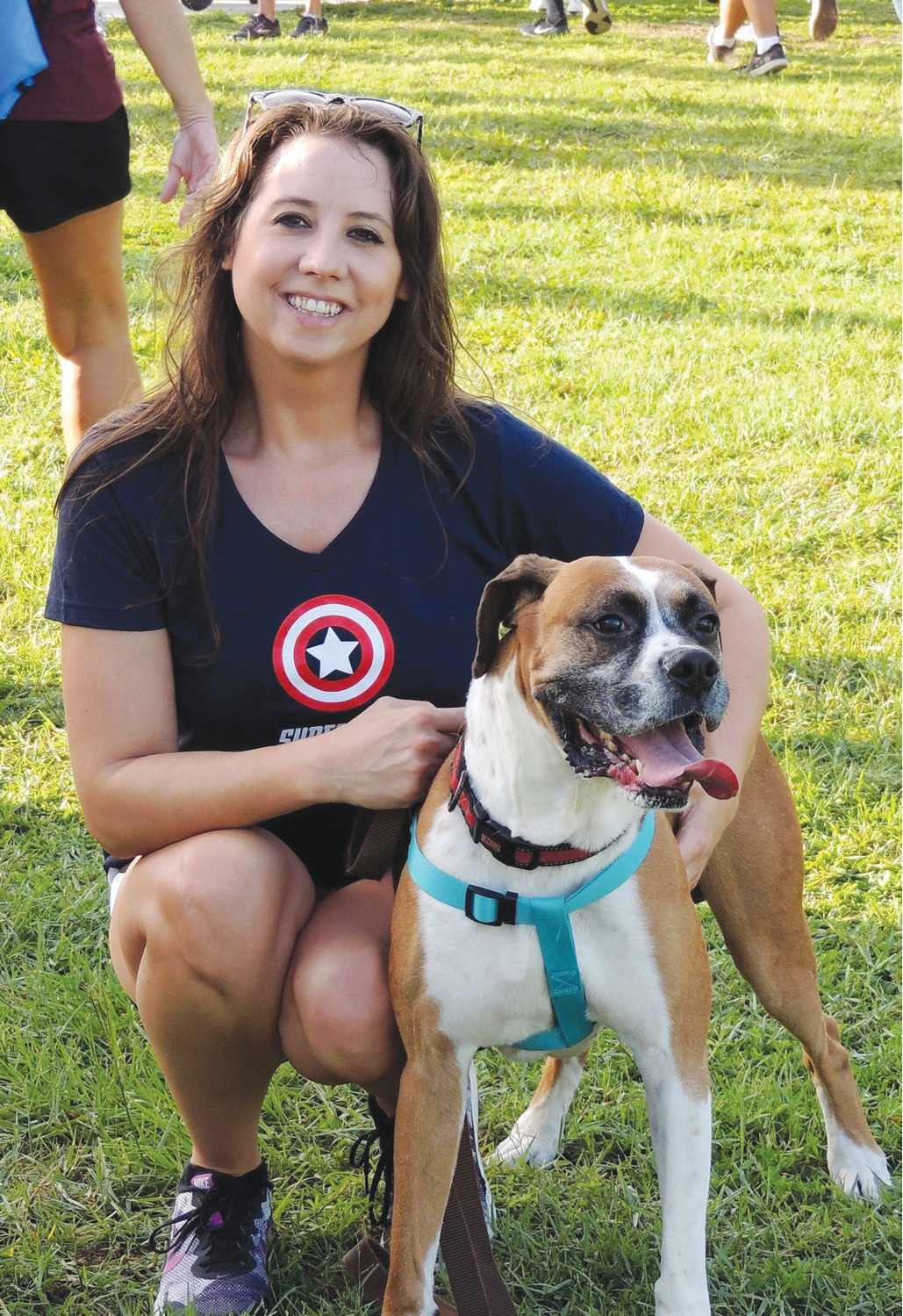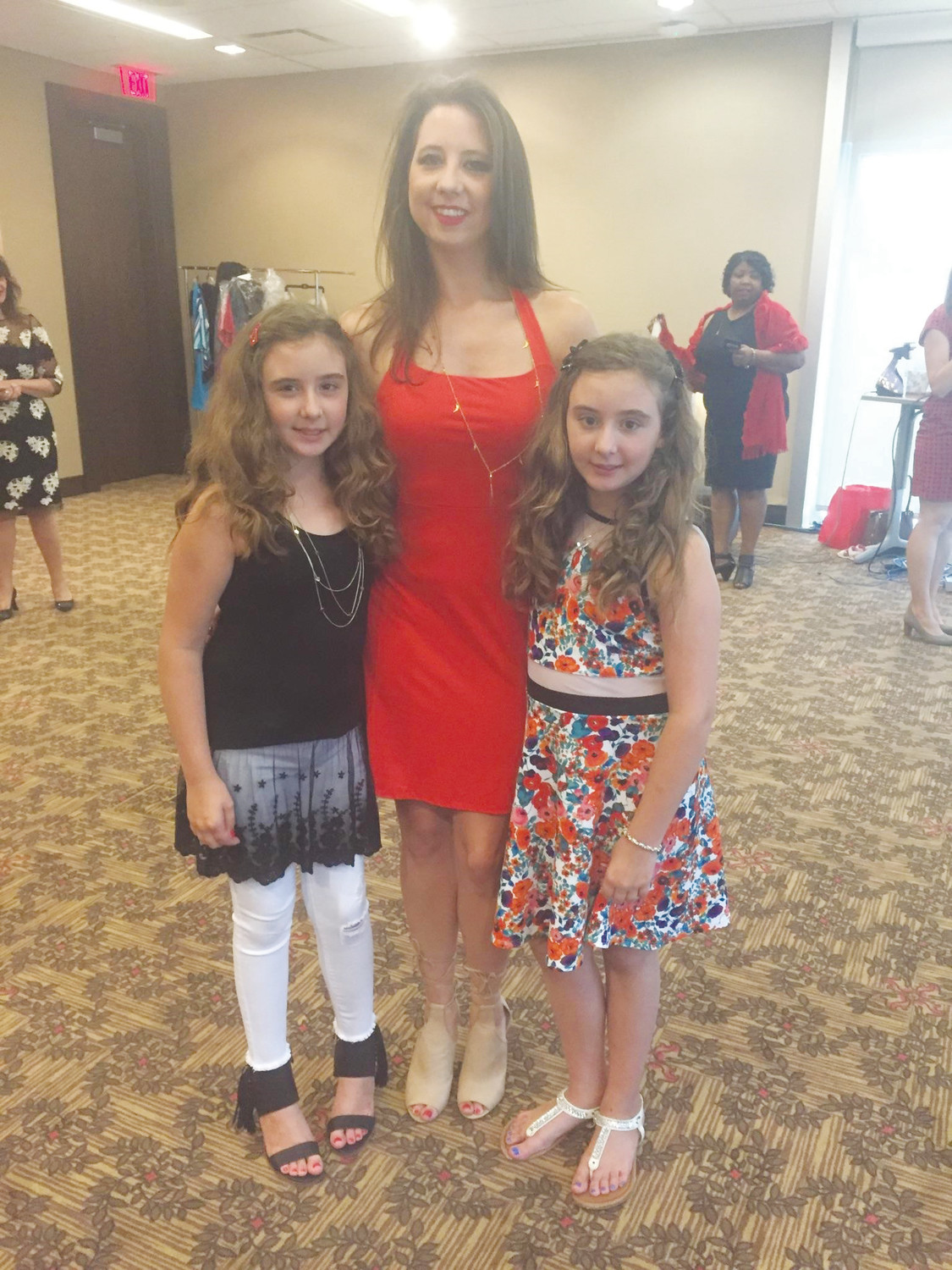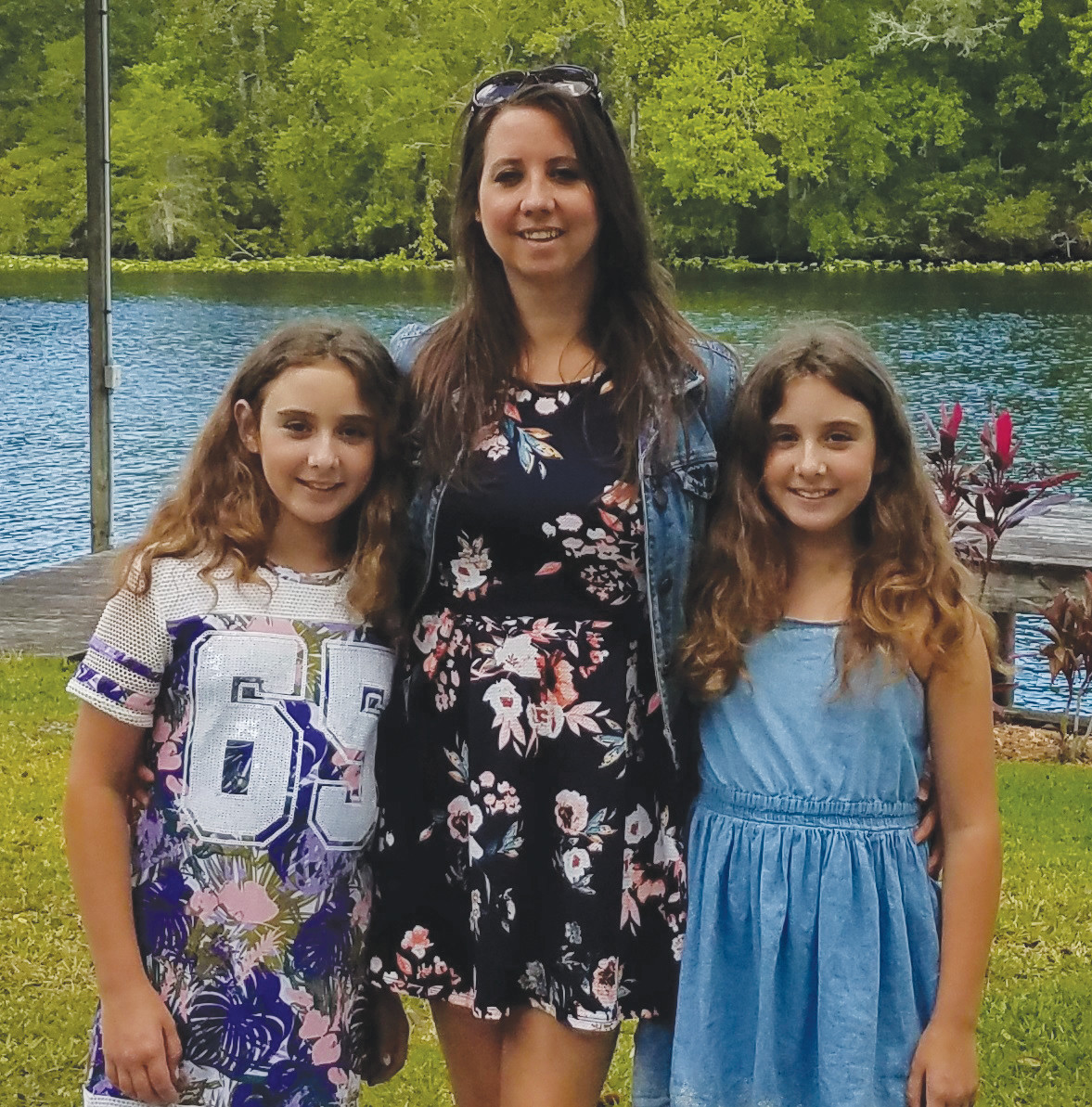Clay woman walks to raise awareness about stroke, heart health
MIDDLEBURG – Seven years ago, Bethany Fonseca could barely crawl her way to the door after having a stroke. In just a few days, she will do something she almost lost the chance to ever do again – …
This item is available in full to subscribers.
Attention subscribers
To continue reading, you will need to either log in to your subscriber account, or purchase a new subscription.
If you are a current print subscriber, you can set up a free website account and connect your subscription to it by clicking here.
If you are a digital subscriber with an active, online-only subscription then you already have an account here. Just reset your password if you've not yet logged in to your account on this new site.
Otherwise, click here to view your options for subscribing.
Please log in to continueDon't have an ID?Print subscribersIf you're a print subscriber, but do not yet have an online account, click here to create one. Non-subscribersClick here to see your options for subscribing. Single day passYou also have the option of purchasing 24 hours of access, for $1.00. Click here to purchase a single day pass. |
Clay woman walks to raise awareness about stroke, heart health
MIDDLEBURG – Seven years ago, Bethany Fonseca could barely crawl her way to the door after having a stroke. In just a few days, she will do something she almost lost the chance to ever do again – walk.
The 35-year-old Middleburg resident had lived the first 27 years of her life relatively healthy. She didn’t have any underlying diseases. She did everything doctors told her to do. Other than occasional migraines, health-related problems never found themselves at the forefront of Fonseca’s life, at least not until two episodes that she unfortunately chose to ignore. The third episode would be the stroke that could have taken everything away from her.
“I think I had a couple of little episodes before the stroke, but ultimately, I just wasn’t able to do anything about them at the time,” Fonseca said.
The first episode happened while Fonseca was brushing her hair getting ready for work. Out of nowhere, her hand and arm went numb and she dropped the brush. The numbness went away a few minutes later and she continued with her business. A couple months later, something similar happened again. Fonseca grabbed her keys to take her dog outside and while walking down the apartment stairs, she dropped her keys. This time, her hand was so numb that she couldn’t position her fingers around the keys to pick them up.
“Probably at that point, I would have gone to the doctor or the emergency room, but I had my kids with me and it was really late at night, so I was like, ‘you know what, I’m just going to go to bed and see how I feel the next day,’,” Fonseca said. “That was the second episode and again, I ignored it. The third one was a few months later and that was the big one; that was the stroke.”
On the morning of the stroke, Fonseca had a friend over at her apartment. While sitting and chatting, Fonseca noticed that she had a headache, but for her, headaches were nothing new. Again, she ignored it. Shortly after her friend left, Fonseca went to go take a shower. As soon as she bent down to draw the shower, the room started spinning.
“My vision was all but gone,” Fonseca said. “It was very blurry but I could make out the M of my friend’s name on my phone so I was able to call her and I said, ‘hey, something’s not right and you need to come over,’.”
Fonseca’s friend had every intention of making her way inside to help Fonseca but when she arrived at the apartment, the door was locked.
“I had to literally army crawl my way from the back of my apartment all the way to the front and the only one home at the time was my dog,” Fonseca said. “Every time I would collapse, he would nudge me in the rear to get me going and to get me up, and by the time I got to the front door, I only had enough strength to reach up and unlock the door to let [my friend] in.”
Once her friend was inside, she called 9-1-1 and in no time, Fonseca was being cared for at Baptist South. She doesn’t remember anything that happened that night, but she distinctly remembers waking up to the sound of doctors talking. They explained that all of the tests showed she was OK and because of that, they were going to release her.
“You’re not sending me anywhere,” Fonseca recalls telling the doctors. “I’ve had migraines my entire life and not once have they ever been like this so until you figure out what’s going on, I’m not going home. I refuse.”
As a result, a neurologist was called in to do a stroke assessment and almost immediately, due to Fonseca’s lack of complete feeling down the right side of her body, the neurologist determined that Fonseca had a massive stroke. She was rushed to the Intensive Care Unit.
“I can’t imagine what my life, if any, would have been like if they sent me home,” Fonseca said.
From this point forward, the next few months of her life would be the toughest Fonseca had ever lived. She could no longer take care of her two girls, 5-year-old twins who had just began kindergarten. She could no longer work. She couldn’t even go to the grocery store to buy food. To help, Fonseca’s mom flew in from Texas to help care for her. Fonseca’s work friends, who she calls family, helped her with anything she needed too. She said if it wasn’t for her friends, she wouldn’t have made it.
It’s been seven years since Fonseca suffered a stroke and today, she’s happy to be living the life she once had. Although some things have changed – such as a new diagnosis of an autoimmune disorder. Now she has extended bouts of fatigue, but sicknesses stay longer than usual as her body is less capable of fighting off illness. She doesn’t let it get her down, though.
“If that’s all I have to deal with after the stroke, that’s fine by me,” Fonseca said. “My life could be significantly worse.”
Today, Fonseca is back at work with her twins back by her side, and they’ll be walking by her side in the Sept. 15 First Coast Heart Walk. The 2018 walk marks the event’s 25th anniversary, but it will be the first time Fonseca will be participating with her daughters by her side.
“I do the walk every year, but this is the first time my girls will be doing it too,” Fonseca said. “They’re 12 now so it’s not cool to like mom, but I think they’ll be really excited to do it with me. They understand now what it means.”
Each year, the American Heart Association teams up with hundreds of residents of the First Coast like Fonseca to use the walk to spread awareness of heart disease and stroke. The money raised helps fund research that can lead to new technologies to catch both heart disease and strokes before they ever happen, among other things. Since the start of the Heart Walk, of which there are over 300 held nationwide each year, in 1993, mortality rates from cardiovascular disease and stroke have dropped 45 percent.
The First Coast Heart Walk will be held on Saturday, Sept. 15, at Jacksonville’s Metropolitan Park and includes either a three-mile walk designated for any participant or a one-mile stretch of walk designated specifically for survivors. Over the past 25 years, the American Heart Association and the American Stroke Association have funded $3.4 billion for research. Every day, about 2,150 Americans die from heart disease. The American Heart Association said it’s the No. 1 killer in the U.S. and takes the lives of about 219,000 each year. For anyone wanting to walk, individuals and teams can still register online at www.firstcoastheartwalk.org.
Fonseca, who walks each year with Brooks Rehabilitation, the site of her physical therapy located off University Boulevard, is proud to participate each year. For her, it’s a way to open the eyes of someone who might not recognize the signs of what’s to come, much like her younger self.
“I think it’s important to get out there and raise more awareness,” Fonseca said. “It was a big eye opener for me and I learned that a stroke can happen at any age. [Strokes] don’t discriminate. They don’t care about your race, your gender, your lifestyle. It can happen to anyone and if what happened to me can save even just one person, then it’s all worth it.”
“The stroke I had doesn’t define me,” Fonseca said. “It’s not who I am – it’s a tool to help others.”













